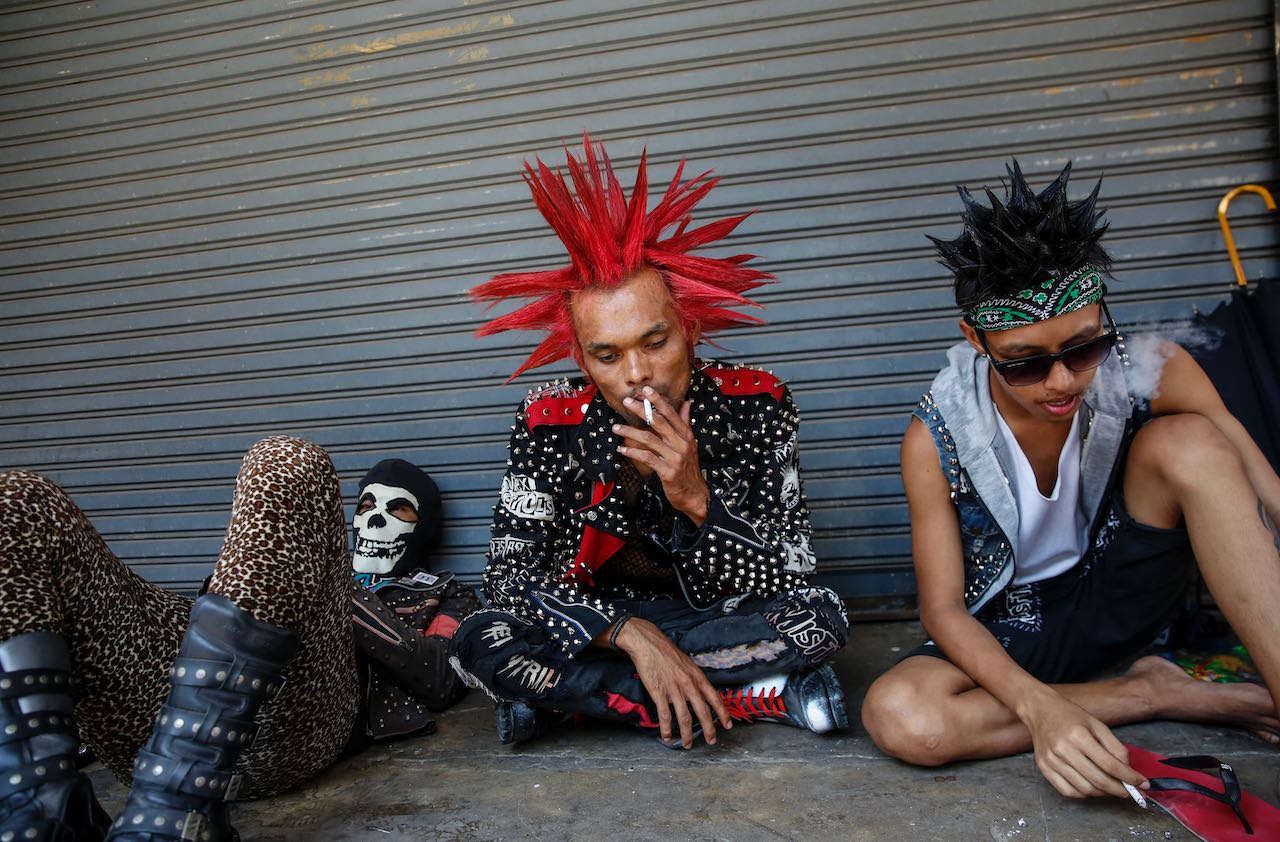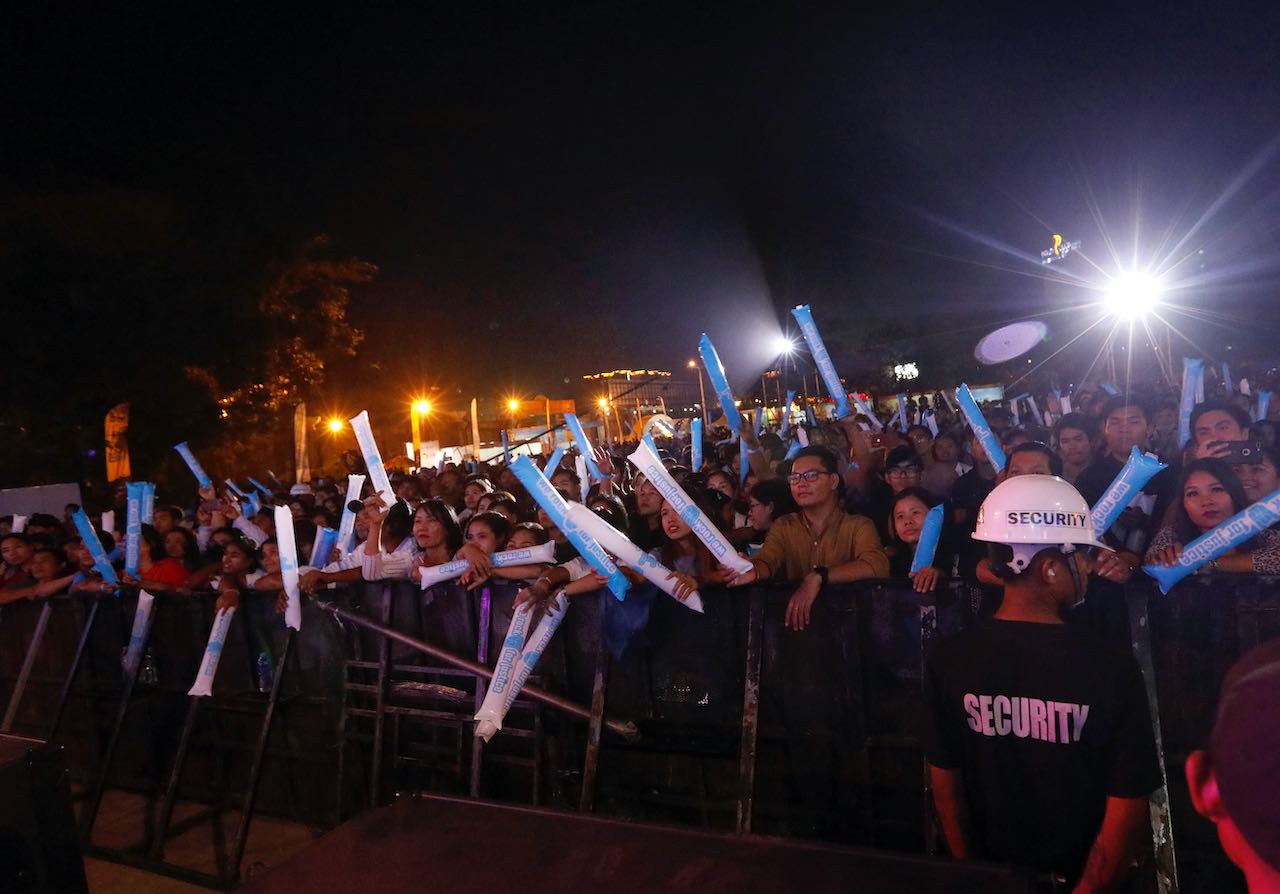Editor’s note: Yangon-born acoustic guitarist and songwriter Nick Drake was found dead at his parents’ home in the UK on this day in 1974, the same year dictator Ne Win imposed a draconian new constitution aimed at speeding-up the so-called Burmese Way To Socialism. Decades later, as Myanmar dispensed with military rule, long-repressed heavy metal and punk scenes re-emerged as angrier and louder alternatives to popular but saccharine balladeers and K-pop acts. Here’s our look at how Yangon’s metallers fitted into the city’s wider music scene as it was in 2013.
Things were not going well for the young headbangers of Yangon. Forty minutes into a rare outdoor concert that had brought together nearly every band involved in the city’s death metal underground, the plug had been pulled and the lights were out.
Was it part of a sinister plot by iron-fisted authorities to silence the 14 bands on the bill, which boasted a spine-tingling litany of acts such as Nightmare, Last Days of Beethoven, Darkest Tears From My Heart, Married for the Pain and Take My Last Breath?
Not quite, according to show organiser Aung Khant. At work was a force much darker than censorship, a force that has had an enormously negative impact on Yangon’s metal scene: lack of respect.
“The problem was not the government. They gave us a permit for the concert. The problem was the people who run [concert venue] Kandawgyi Park, who took our money to rent the stage but didn’t supply us with enough voltage, so the music blew the system,” he said. “This is something that would never happen to a big-name pop or hip-hop act in Yangon.”

Popular musicians not only get all the voltage, Aung Khant complained, they also get all the sponsorship money. With Yangon suffering from a lack of small venues suitable for up-and-coming bands, the majority of concerts are held on big stages in parks and theatres, and they don’t come cheap.
“In Myanmar there are hundreds of shows every year, but there is no place for underground metal,” said Novem Htoo, the vocalist of Nightmare. “No one will sponsor our concerts. When we approach potential supporters, all they want to know is what famous musicians will perform, and then they never get back to us.”
“They don’t understand music. All they know about is money,” added the band’s guitarist, Aung Myo Linn.
The watershed year for underground metal in Yangon was 2007, which saw the formation of Nightmare, Last Days of Beethoven, Darkest Tears From My Heart and a handful of other groups.
Five of these new bands immediately got together and recorded two songs each, releasing them on a ten-song compilation CD, which was distributed for free at shows. Around that time a promoter named Ko Ye also kicked off an underground concert series called Woodstock, named after (and funded by) his fashion shop in Yangon.
“We had big audiences for the first few concerts in that series. They knew our songs from the CD sampler,” said Pho Zaw, guitarist for Last Days of Beethoven.

Darkest Tears From My Heart singer Moe Lone added that the Woodstock series was launched out of love for metal music, but organisers eventually fell prey to the clarion call of big-name acts, adding local superstars like rocker R Zarni to the bill for the fifth and sixth concerts. They would end up being the last shows in the series.
“The organisers understood metal music in some ways and misunderstood it in others. They made a mistake by mixing metal and pop-rock music,” Moe Lone said. “Our fans wanted to see metal bands, and the other fans wanted pop music. It ended in conflict and disappointment for everyone.”
It was the beginning of a downturn for the metal underground. For a few years no one stepped in to organise shows exclusively for metal fans, and bands lacked the funds to record and release their own music. Many of them bowed out of the scene for good. In 2012 there were only two metal concerts (including the Kandawgyi Park fiasco), and audiences were small.
“A couple of years ago, 16- and 17-year-olds were only interested in hip-hop. But now we’re seeing some new young guys getting into the metal scene,”
Aung Khant
“It’s expensive to book time in recording studios, or even to buy instruments,” said Novem Htoo. “Some of the bands lacked the patience to deal with these problems, so they broke up and some musicians moved overseas.”
Others, including Nightmare, have soldiered on. The band plans to release their debut CD, with all-original material, some time after April. Currently in the mixing stage, the 12-song disc titled Nga Dto Thamine (Our History) will be the first solo album to come out of Yangon’s death metal scene.

Nightmare was formed by friends who shared an interest in metal music, with influences including American bands Suicide Silence and Lamb of God. Novem Htoo said they chose their name to indicate that they were a force that could not be ignored. “People don’t like having nightmares, but it’s not their choice and they can’t avoid them,” he said. “They have nightmares whether they like it or not.”
Musically the band matches the growling, ripsaw intensity of their brethren in the West, but while Western death metal lyrics often focus on violence, horror and the occult, Nightmare writes about topics like broken families and people who destroy themselves in the pursuit of material wealth.
“We want to give our fans who are having personal troubles something to grab onto, something to make them feel reassured,” Novem Htoo said. “We want to give them a sense of self, tell them to live happily, and then when it’s time to die, they will die like everyone else.”
As a band, Last Days of Beethoven also focuses on self-realisation. “Most of our songs send a message of not giving up, of not being so downhearted. And some songs are just meant to get an energetic reaction from the crowd,” said guitarist Pho Zaw.
He added that the band has not been affected by the recent relaxation in the censorship of music lyrics resulting from Myanmar’s slow plod toward democracy. “We don’t write rude songs or use rude words like some hip-hop singers, so we never had problems with censors,” he said.

And the band’s name? “Beethoven created pleasant music. What we mean is that when we take the stage, there will be no more pleasant music, it’s the last day of pleasant music,” Pho Zaw added.
With any luck, Yangon metal fans will soon have more “unpleasant” music to enjoy. Aung Khant is currently scraping together money to organise another group show, this time at a venue where he hopes the power will stay on. He’s aiming for June, but an exact date has not been set.
In another positive sign, he said he has noticed an increased interest in metal music among teenagers, despite the lack of concerts and recorded material.
“A couple of years ago, 16- and 17-year-olds were only interested in hip-hop. But now we’re seeing some new young guys getting into the metal scene,” Aung Khant said.
“Everyone has their own musical tastes,” Novem Htoo added. “I think some of these young people come from family situations or economic backgrounds that are not so good, and maybe for them the passion and the screaming vocals of metal music provide some kind of respite.”

Whether Yangon’s underground metal scene remains stagnant seems beside the point for some of these musicians, who look set to continue making their music with or without fans and concerts.
“Compared with pop music and hip-hop, metal takes a lot more time and practice to do well, and we’re all dedicated to improving,” Moe Lone said.
“I don’t even understand why I like metal so much, but I know it’s lodged in my blood and in my mind. And whenever I listen to other types of music, I get a headache and feel a little sick,” he said with a smile.
*This story has been amended slightly from the 2013 original, with different photos and a revision to the name of one of the bands


